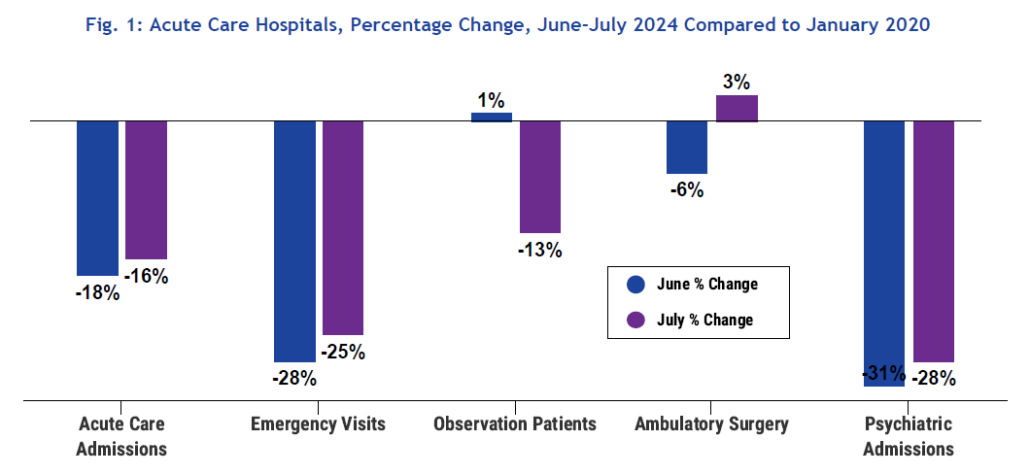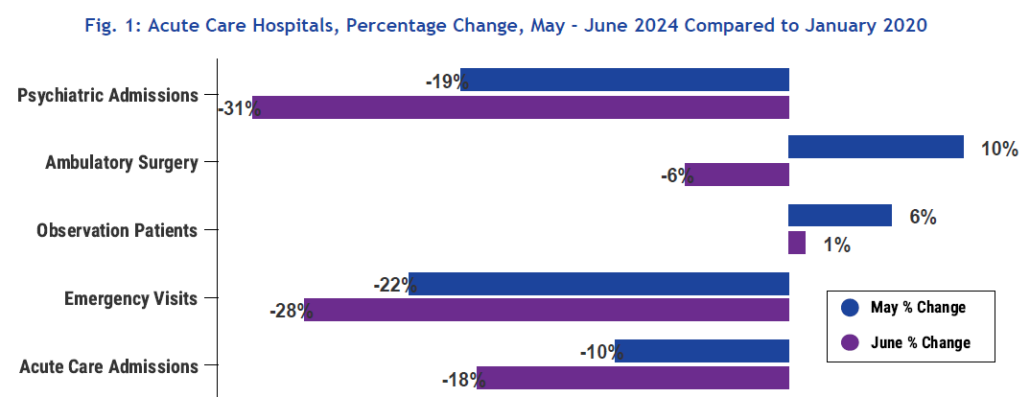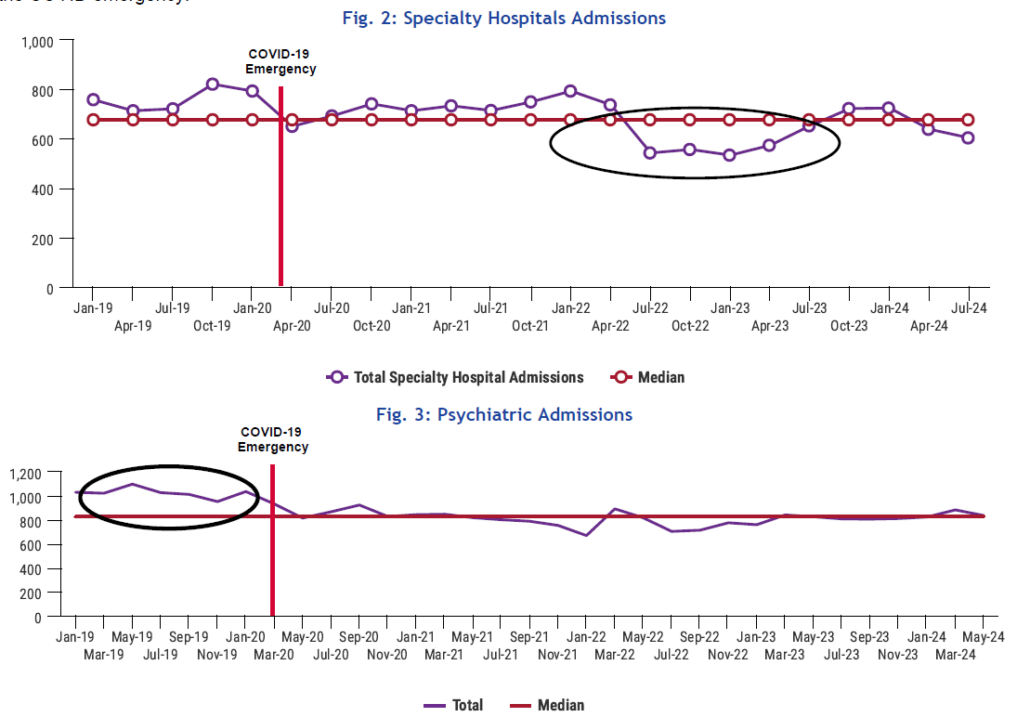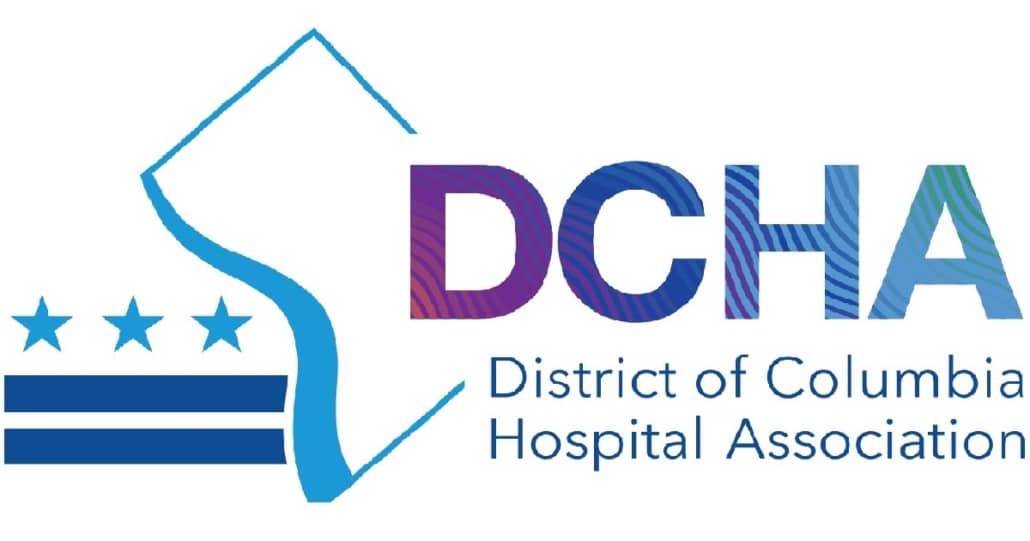 The District of Columbia Hospital Association (DCHA) announced its 2024 Vincent C. Gray Health Equity Awards on November 8 at a special tribute event honoring Vincent C. Gray for his years of service and numerous contributions to the District and its residents.
The District of Columbia Hospital Association (DCHA) announced its 2024 Vincent C. Gray Health Equity Awards on November 8 at a special tribute event honoring Vincent C. Gray for his years of service and numerous contributions to the District and its residents.
DCHA believes that to achieve health equity we must understand the challenges, aspirations, barriers, and realities of the community. It’s vital to share examples of innovative approaches to equity and shine a light on leaders across the District of Columbia. DCHA recognizes the importance of health equity and is working with its member hospitals to ensure that disparities in health care quality and access are eliminated.
Last year, DCHA announced the Health Equity Award to honor and recognize those who are making health equity a reality in their community and leveraging engagement to improve health outcomes for those most impacted by health disparities.
The inaugural award was given to Vincent C. Gray for his demonstrated success in changing systems that impact health outcomes in access and equity, diversity, and inclusion. The award was given to recognize his decades of service to the District, history of dedication to eradicating health disparities, perseverance in ensuring that all residents have access to quality health care, and for being an instrumental force in making the Cedar Hill Regional Medical Center a reality.
The award is now called the Vincent C. Gray Health Equity Award to forever honor Vincent Gray’s legacy of being a voice for the voiceless and ensuring that health care is a right and not a privilege.
DCHA is proud and excited to name this year’s recipients of the 2024 Vincent C. Gray Health Equity Award for their commitment, dedication and inspiring actions to advance health equity and eliminate health disparities.
Safe Babies, Safe Moms Program, MedStar Washington Hospital Center
Safe Babies Safe Moms is a partnership between MedStar Health, Community of Hope, and Mamatoto Village that addresses disparities in maternal and infant care in Washington, DC. The program puts each family at the center of their care before, during, and after pregnancy and until the child reaches age three. Safe Babies, Safe Moms combines the expertise of MedStar Health, evidence-based health care, and proven community-centric support services. The program brings together partners and the community to provide interdisciplinary, multigenerational health and support services for birthing people and their families.
Joy A. Lewis, MSW, MPH, American Hospital Association
The American Hospital Association’s Joy Lewis, Senior VP of Health Equity Strategies and Executive Director of the Institute for Diversity and Health Equity, has led efforts to address systemic racial and health disparities, including those in maternal health, structural racism, and disability inclusion. The Health Equity Roadmap is a cornerstone project that assists hospitals in embedding equity into their clinical and business operations. Key disparities addressed include inadequate maternal health care for vulnerable groups, specifically Black and Indigenous women, as well as improving access for minorities, people with disabilities, and LGBTQ+ populations.
Dr. Kimberly Nettles, PharmD, RPh, Johnson & Johnson Innovative Health
Dr. Nettles led a transformative health equity project aimed at reducing disparities in cancer screening, treatment access, and outcomes for racial and ethnic minorities, individuals with disabilities, and LGBTQ+ communities. The project addressed disparities in oncology care, where these vulnerable groups experience higher rates of late-stage cancer diagnoses and lower access to cutting-edge therapies. By including community-based education, partnerships with health care providers, targeted outreach, culturally competent care models and increasing diversity in clinical trials, the project resulted in an increase in cancer screening rates and a reduction in late-stage cancer diagnoses.
“On behalf of DCHA and the Board of Directors, we are proud to honor such deserving individuals who have dedicated their professional careers – and personal time – to addressing health equity and positively impacting the health outcomes of the DC community and beyond,” said Jacqueline D. Bowens, President & CEO of DCHA.
Thank you to our Vincent C. Gray Health Equity Award sponsors: CareFirst BlueCross BlueShield, Sibley Memorial Hospital, ReedSmith, Vital Corporation, Cedar Hill Regional Medical Center, Cherrie Wanner Doggett, Howard University, Howard University Hospital, MedStar Health, Psychiatric Institute of Washington and Jason Wright.


 The District of Columbia Hospital Association (DCHA) announced its 2024 Vincent C. Gray Health Equity Awards on November 8 at a special tribute event honoring Vincent C. Gray for his years of service and numerous contributions to the District and its residents.
The District of Columbia Hospital Association (DCHA) announced its 2024 Vincent C. Gray Health Equity Awards on November 8 at a special tribute event honoring Vincent C. Gray for his years of service and numerous contributions to the District and its residents.








